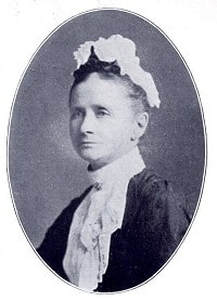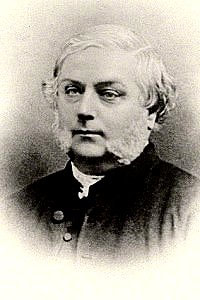"There is an appointed time for everything. And there is a time for every event under heaven— A time to tear apart and a time to sew together; A time to be silent and a time to speak." (Ecclesiastes 3:1, 7)
"Speak little, because for one sin which we may commit by keeping silence where it would be well to speak, we commit a hundred by speaking upon all occasions" (Pinart, Ref. 1).
This lesson is the fourth and final lesson in the series on Biblical Principles of Sound Speech.
Consider. What times or examples can you think of where the Bible says we should be silent instead of speaking?
When Circumstances Demand
"There is an appointed time for everything. And there is a time for every event under heaven—A time to tear apart and a time to sew together; A time to be silent and a time to speak" (Ecclesiastes 3:1, 7). In Ecclesiastes 3:7, the Hebrew word for silent is chashah, which means to hush, keep quiet, hold peace, keep silence, be silent, be still (Ref. 2).
English Theologian John Gill (1697 - 1771) (Ref. 3, Ref. 4) described three circumstances when we should be silent:
1. During an evil time or a time of national calamity (Amos 5:10-13) 2. To express sympathy - "When a particular friend or relation is in distress, as in the case of Job and his friends" (Ref. 4, Job 2:13). Note that Job's friends showed support for Job by visiting Job and sitting with him silently for seven days. Sitting on the ground "marked mourning" (Ref. 5, Lamentations 2:10). "Seven days was the usual length of it" (Ref. 5, Genesis 50:10, 1 Samuel 31:13). 3. "When in the presence of wicked men, who make a jest of everything serious and religious" (Ref. 4, Psalm 39:1) To Listen to God
"Guard your steps as you go to the house of God and draw near to listen rather than to offer the sacrifice of fools; for they do not know they are doing evil. Do not be hasty in word or impulsive in thought to bring up a matter in the presence of God. For God is in heaven and you are on the earth; therefore let your words be few" (Ecclesiastes 5:1-2).
To Respect God and To Be In Awe of God
The prophet Habakkuk said, "The Lord is in His holy temple. Let all the earth be silent before Him" (Habakkuk 2:20). Habakkuk was comparing the profit-less act of speaking to false idols with the reverential awe we should have for the living, true God (Habakkuk 2:18-19).
To Guard Our Soul from Troubles
"He who guards his mouth and his tongue, guards his soul from troubles" (Proverbs 21:23).
To Avoid Transgression
"When there are many words, transgression is unavoidable, but he who restrains his lips is wise" (Proverbs 10:19). "Loquacity leads to exaggeration and untruthfulness, slander, and uncharitableness" (Ref. 1).
When We're Feeling Angry
"Let all bitterness and wrath and anger and clamor and slander be put away from you, along with all malice" (Ephesians 4:31). "Everyone must be quick to hear, slow to speak and slow to anger; for the anger of man does not achieve the righteousness of God" (James 1:19-20).
To Be Counted As Wise
"He who restrains his words has knowledge, and he who has a cool spirit is a man of understanding. Even a fool, when he keeps silent, is considered wise; when he closes his lips, he is considered prudent" (Proverbs 17:27-28, italics added). When I was a youth, my father quoted this saying to me - "It is better to keep silent and have people think you are a fool than to open your mouth and remove all doubt." Researchers disagree whether to attribute this quote to American author Mark Twain or to President Abraham Lincoln, or to someone else. However, the concept is clear.
Apply. Think about this topic. In what personal situations or circumstances would it be better for you to remain silent instead of speaking?
Related Lessons
"Biblical Principles of Sound Speech - Be a Good Example" (Titus 2:7-8) "Biblical Characteristics of Sound Speech" (Ephesians 4:29) "Biblical Principles of Sound Speech - Our Heart and Our Mouth" (Matthew 15:18)
2 Comments
"But the things that proceed out of the mouth come from the heart, and those defile the man" (Matthew 15:18).
Today's lesson is the third in a series on Biblical Principles of Sound Speech.
Consider. Think for a moment. Do you agree with Jesus' statement in Matthew 15:18 that what we say comes from what is in our heart? Read - Matthew 15:1-20. This passage will provide the context for today's lesson. What We Say Defiles Us in God's Sight
When Jesus spoke to the Pharisees and scribes in Matthew 15:1-20, Jesus was speaking to people who did not (yet) believe in him or accept his authority. The concept of the relationship between our heart and our mouth still applies to us today as believers in Christ and also applies to non-believers. What we take into our hearts, or allow into our hearts, determines the quality of our speech.
Jesus turned the discussion from handwashing (Matthew 15:2) to the more important subject of being clean in our hearts, speech, and thinking. "After Jesus called the crowd to Him, He said to them, 'Hear and understand. It is not what enters into the mouth that defiles the man, but what proceeds out of the mouth, this defiles the man' " (Matthew 15:10-11). The Greek word for defile is koinoó, which means unclean, pollute, or desecrate (Ref. 1). "Jesus replaced the normal Jewish understandings of defilement with the truth that defilement comes from an impure heart, not the violation of external rules" (Ref. 2 below). In Matthew 15:11 and Matthew 15:18, the Greek word for man is anthrópos, which is the generic term for mankind; the human race; people, including women and men (Ref. 3). Our Heart is the Source of the Evil and the Good We Speak
When Jesus spoke about the heart of man in Matthew 15:15-20, he spoke a concept that was familiar to his Jewish listeners. The Hebrew word for heart is leb, which means inner man, mind, will, heart (Ref. 4). The Hebrew word, leb (heart), occurs over 500 times in the Old Testament (Ref. 4). The prophet Jeremiah said, "The heart is more deceitful than all else and is desperately sick; who can understand it?" (Jeremiah 17:9). David prayed, "Create in me a clean heart, O God, and renew a steadfast spirit within me" (Psalm 51:10).
In the New Testament, the Greek word for heart in Matthew 15:18 and in almost all New Testament occurrences is kardia (Ref. 5). Kardia occurs over 150 times in the New Testament (Ref. 5). Kardia means the heart; mind, character, inner self, will, intention (Ref. 5). In Matthew 15:18, Jesus is saying that the evil that comes out of our mouth comes from what is in our heart. Jesus also said, "The good man out of the good treasure of his heart brings forth what is good; and the evil man out of the evil treasure brings forth what is evil; for his mouth speaks from that which fills his heart" (Luke 6:45).
Below I have included a "HIPO" (Hierarchical Input Process Output) chart that I prepared many years ago when I first taught this lesson on Sound Speech to my Adult Sunday School class at church. At the time, I was working as a computer programmer for a large company. The chart illustrates examples of healthy and unhealthy inputs we take into our hearts. Our senses also can influence our heart. Our mouths are our primary output device (Matthew 15:11, 18). In today's culture, with texting, tweeting, instant messaging, and email, we should include our "fingers" as output devices as well. The concept still applies.
It is Important to Guard What We Take into Our Heart
The purity of what we take into or allow into our heart affects the quality of what we say. As per the examples in Figure 1 above, we need to be careful about our entertainment choices and being around unwholesome speech because these can contaminate our thinking.
The apostle Paul was quite clear when he described what we should think about. "Finally, brethren, whatever is true, whatever is honorable, whatever is right, whatever is pure, whatever is lovely, whatever is of good repute, if there is any excellence and if anything worthy of praise, dwell on these things" (Philippians 4:8, italics added). David said, "How can a young man keep his way pure? By guarding it according to your word" (Psalm 119:9). Solomon wrote, "Above all else, guard your heart, for everything you do flows from it" (Proverbs 4:23).
Apply. Pray and ask God to bring to your mind the steps you should take to guard your heart and to improve the purity of your thinking (Philippians 4:8). As part of your action plan, read and meditate upon God's word daily (Psalm 119:9).
Related Lessons
"Biblical Principles of Sound Speech - Be a Good Example" (Titus 2:7-8) "Biblical Characteristics of Sound Speech" (Ephesians 4:29) "Biblical Principles of Sound Speech - A Time to Be Silent" (Ecclesiastes 3:7)
References
1. https://biblehub.com/greek/2840.htm 2. The NIV Study Bible, Zondervan Bible Publishers, 1985, note on Mark 7:20 3. https://biblehub.com/greek/444.htm 4. https://biblehub.com/hebrew/3820.htm 5. https://biblehub.com/greek/2588.htm
"Joseph also went up from Galilee, from the city of Nazareth, to Judea, to the city of David which is called Bethlehem, because he was of the house and family of David, in order to register along with Mary, who was engaged to him, and was with child" (Luke 2:4). This article explores the story behind and the scripture allusions in the hymn, "Once in Royal David's City." Hymn Text Writer Cecil Frances Alexander (1818-1895) was an Anglo-Irish hymnodist and poet. Mrs. Alexander's hymns and poems though her lifetime number nearly 400 (Ref. 2). She is best known for her hymns, "All Things Bright and Beautiful," There is a Green Hill Far Away," and the Christmas carol, "Once in Royal David's City" (Ref. 3). As an adult, Cecil Frances Alexander wrote primarily for children. She felt that the truths of Christianity could best be taught through hymns (Ref. 4 below). In 1848, Cecil Frances Humphreys (her name before she married) wrote a series of hymns to teach children about the Apostles Creed (Ref. 4, Ref. 5). She wrote "Once in Royal David's City" to explain to children the phrase from the Apostle's Creed that Jesus Christ was conceived by the Holy Ghost and born of the Virgin Mary (Luke 1:34-35 KJV, Ref. 4, Ref. 5). Hymn Tune Composer Henry John Gauntlett (1805-1876) was an English organist and songwriter (Ref. 6). He was also, in turn, a lawyer, author, organ designer, and organ recitalist (Ref. 7). He composed over 1,000 hymn tunes. His most famous tune is "Irby," the tune to which we sing the Christmas carol, "Once in Royal David's City" (Ref. 6). Scripture Allusions I suggest that you refer to the attached hymn sheet music (Ref. 8) for the following discussion of Scripture and the four verses of hymn text. "Once in royal David's city" (hymn, verse 1). In the Bible, the words, "city of David," refer to two locations. In the Old Testament, the city of David referred to the area of Jerusalem that David captured as described in 1 Chronicles 11:4-8. David built houses there and lived there (1 Chronicles 15:1). David was buried in the city of David (1 Kings 2:10). In the New Testament, Luke refers to David's ancestral home, Bethlehem, as the city of David (Luke 2:4, 1 Samuel 17:12). Luke also tells what the angel said when the angel appeared to the shepherds and announced Jesus' birth. "For today in the city of David there has been born for you a Savior, who is Christ the Lord" (Luke 2:11). After the angel had spoken to the shepherds, the shepherds were clear that the location they were to go visit was in Bethlehem (Luke 2:15). "He came down to earth from heaven who is God and Lord of all" (hymn, verse 2). The words, "He came down to earth from heaven" refer to the incarnation of Christ. The Gospel of John says, "And the Word became flesh, and dwelt among us, and we saw His glory, glory as of the only begotten from the Father, full of grace and truth" (John 1:14). "He feels for all our sadness, and he shares in all our gladness" (hymn, verse 3). Jesus was fully God and fully human (John 1:1, John 1:14, Colossians 2:9, Ref. 9). As a human being, Jesus experienced the full range of human emotions, yet without sin (Hebrews 4:15-16). For example, Jesus knew grief and sorrow (Isaiah 53:3, John 11:33-35). Jesus knew joy (Hebrews 12:2). "He leads his children on to the place where he has gone" (hymn, verse 4). Jesus said, "Truly I say to you, whoever does not receive the kingdom of God like a child will not enter it at all" (Luke 18:17). The Gospel of John tells us, "But to all who believed him and accepted him, he gave the right to become children of God" (John 1:12). The hymn's words, "He leads his children," speak to me both of Jesus leading and we who believe in Jesus Christ following him (Ref. 10). Jesus said, "I am the way, and the truth, and the life; no one comes to the Father but through Me" (John 14:6). We know that Jesus has gone to prepare a place for us in heaven (John 14:2-3). Once we put our trust in Jesus Christ, he leads us and we follow him through life to his eternal home. Listen Listen and watch The Choir of King's College, Cambridge, UK sing "Once in Royal David's City." Click here for the YouTube link - Ref. 11. To see and follow the lyrics for the six verses sung in the video, click here - Ref. 12. Prayer Thank you, Jesus, for coming down from heaven to earth to become a human being. Thank you, Jesus, that you know our emotions and that you strengthen us when we are weak. Thank you, Jesus, that when we believe in and accept you, you lead us through life to your eternal home. References
1. http://www.hymntime.com/tch/htm/o/n/c/onceirdc.htm 2. https://hymnary.org/person/Alexander_CF 3. https://en.wikipedia.org/wiki/Cecil_Frances_Alexander 4. Robert K. Brown, Mark R. Norton, "The One Year Book of Hymns," Tyndale House Publishers, Inc., 1995 5. http://www.paperlesshymnal.com/tph/stories/cfalexander/ 6. https://en.wikipedia.org/wiki/Henry_Gauntlett 7. http://www.hymntime.com/tch/bio/g/a/u/gauntlett_hj.htm 8. https://hymnary.org/text/once_in_royal_davids_city_stood_a_lowly 9. http://www.ScriptureWay.com/home/who-is-jesus 10. http://www.ScriptureWay.com/home/jesus-is-the-way-to-heaven 11. https://www.youtube.com/watch?v=X1QZBnWY4F0 12. (the link begins on the next line) https://www.hymnsandcarolsofchristmas.com/Hymns_and_Carols/once_in_royal_davids_city.htm |
Daily Bible Verse(Click the link above) AuthorMr. Whitney V. Myers. Christian. For more information, please visit the Author Page. Posting ScheduleI plan to provide new postings about once a month. Planned Topics(subject to change) Recent Posts(most recent three months) Popular Posts(top 10) Categories
All
Archives
July 2024
|
|
Copyright 2018-2024 Whitney V. Myers |
Listed in Feedspot's Top 100 Bible Study Blogs and Websites |





 RSS Feed
RSS Feed
